I was adopted at the age of seven and transplanted from my
home in Korea to a rural farming community in Minnesota. Growing up there, I
didn’t feel as though I could talk to anyone about how the Whiteness
surrounding me affected me. I often felt voiceless.
My experience isn’t unique -- an increasing body of research suggests
that teen and college-age adoptees, in comparison to their nonadopted peers,
struggle with positive identity development. They are at greater risk of attempting suicide, and many have a hard time finding meaningful ways to express their feelings and share their stories. It is common for adoptees to be labeled
“ungrateful” or “angry” for speaking up, asking questions about their own
history, or discussing their concerns about adoption as a practice and an
industry. As a result, many adoptees -- in particular youth, teen, and young adult
adoptees -- find themselves lacking agency and means of expression.
As a teenager, even if I had felt free to discuss my
confusion and identity issues, I didn’t have the tools or the guidance to be
able to do so. There was no one who could teach me how to talk about these
issues. I was also dealing with severe grief, loss, and guilt as a result of being
separated from my mother in Korea. I wondered if she had abandoned me. I
wondered if she still loved me. I wondered if she was still alive. I was not
sure who I was without her.
Most of the time, I kept all of these thoughts and
fears bottled up, but sometimes my feelings of grief and pain crept to the
surface, and I lashed out in unproductive ways. Every now and then, however, I was able to channel and
explore my feelings through theater. In my senior of high school, I wrote,
directed, and acted in a short play about a lost, isolated teenager who commits
suicide at the play’s conclusion. The character I portrayed was not a direct
reflection of me, but some of his thoughts and experiences overlapped with mine.
While the experience of putting on the play made me feel extremely vulnerable,
working together with the other actors was a safe and supportive process. The
show was seen by all the high school students in my hometown, and resonated
with many people. For the first time, I realized how much people can identify
and empathize with each other through art.
During my senior year of college, I again found an outlet
through theater, when I performed a physically challenging monologue written
from the perspective of a young Japanese man recalling his memory of watching
the explosion in Hiroshima. The piece allowed me to examine and work through
the physicality of pain, grief, and loss, and gave me a way to channel and
express what was happening inside of me as a result of my separation from my
mother.
I cannot imagine what my life would have been like without
these important experiences. Theater gave me a much-needed artistic and
emotional outlet, and allowed me to process some of my feelings about my
mother, my adoption, and my identity issues. Over the years, as I have
connected with thousands of adoptees across the country, many have told me that they found similar outlets and means of
expression through theater, writing, dance, and visual arts.
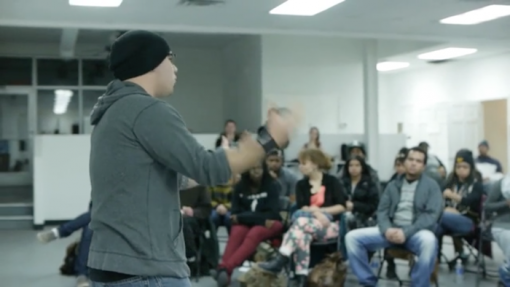
With all this in mind, last year I approached COMPAS, a
nationally recognized arts organization based in St. Paul, MN; and my colleague
Guante, aka Kyle Tran Myhre, a hip-hop artist, educator, poetry slam champion,
and activist. Together,
we founded Creating Home, a program designed to connect teenage,
college-age, and young adult adoptees with artists in
Minnesota. It will be a multidisciplinary storytelling
program, driven by the idea that finding one’s voice through the arts can be an
empowering experience for young people. The focus is to help provide a space to
affirm identity and build community, in whatever ways participants need. Through
spoken-word performance, literature, visual arts, dance, and other forms of
expression, teen and college-age adoptee participants will be given resources and
support to tell their stories and share their thoughts and perspectives on
their own terms, in their own ways.
As a young adoptee, I once thought I was voiceless and
alone, but theater convinced me that that wasn’t true. I want all young adoptees -- an
underrecognized and often underserved population -- to have the same chance to share
their feelings and experiences, and know that others hear and understand.
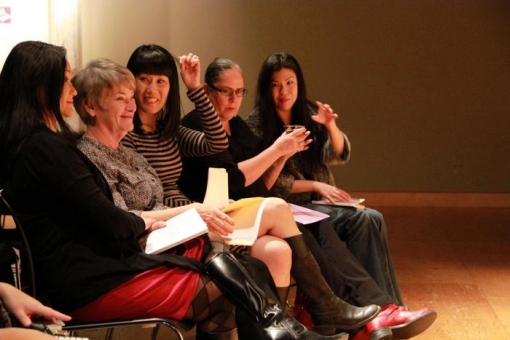
***
Kevin Haebeom Vollmers is
the founder of Land of Gazillion Adoptees (LGA), a multimedia company based out
of Minneapolis, MN. He is the co-editor of Gazillion Voices Magazine
and the publisher of Parenting As Adoptees, The Declassified
Adoptee: Essays of an Adoption Activist, Lost Daughters: Writing Adoption
From a Place of Empowerment and Peace, and Hank Aaron’s Daughter. His
work focuses on the intersectionality between adoption, race, culture,
identity, performance, art, politics, and social movements.






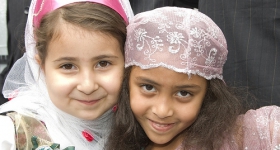
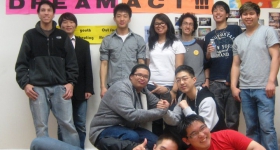
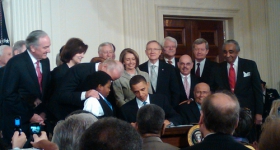
Comments